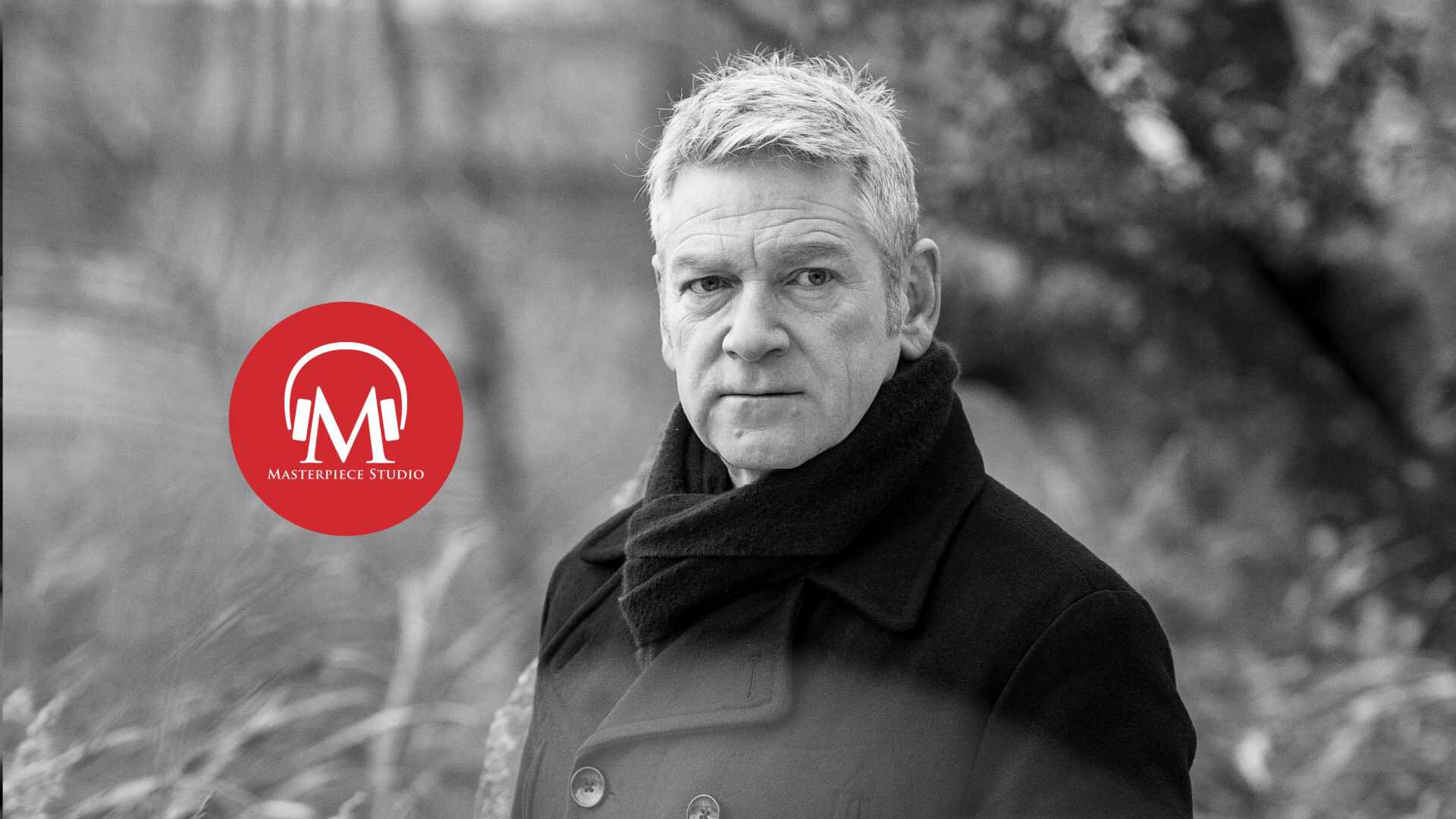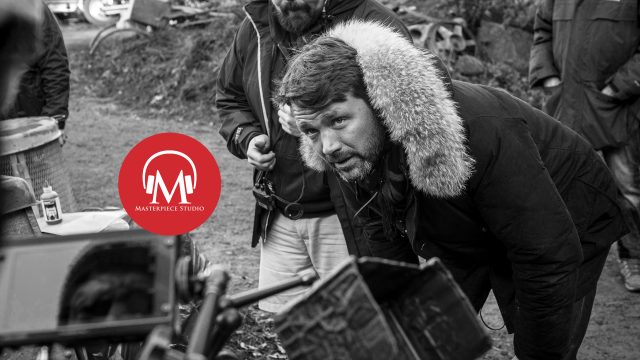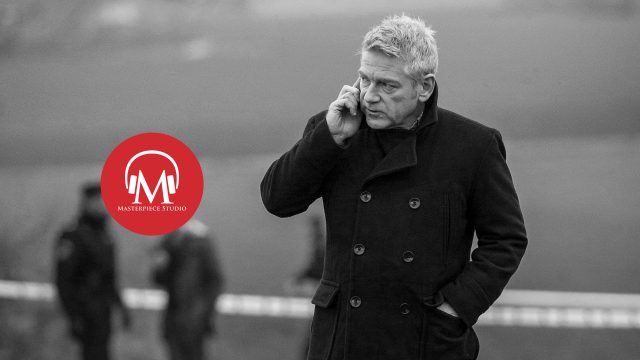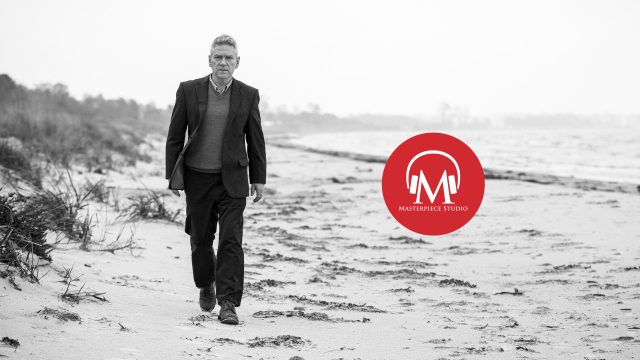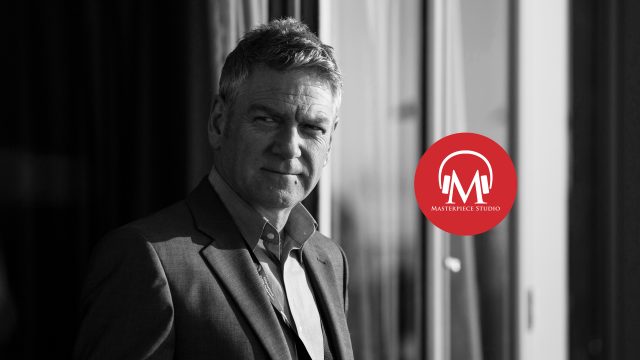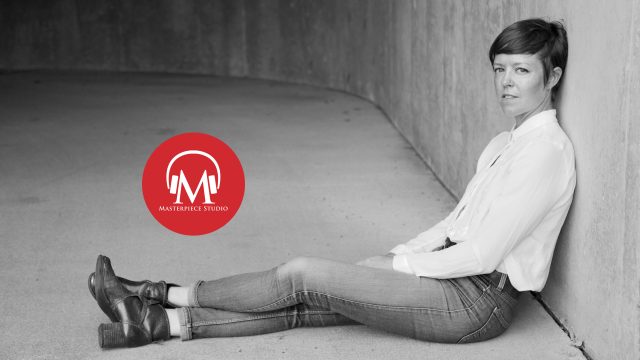Jace Lacob (Jace): MASTERPIECE Studio is brought to you by Audible. For a free trial, go to Audible.com/Masterpiece.
Jace: I’m Jace Lacob and you’re listening to MASTERPIECE Studio.
Though Kurt Wallander is frequently troubled by the heinous crimes he investigates, memories of his father’s final days have haunted him consistently over the last four seasons.
In the finale — “The Troubled Man” — these fears loom even larger when Kurt learns that he too has Alzheimer’s.
CLIP:
Doctor: It is time to start making some adjustments, Kurt. It’s time to tell people.
Jace: As his illness progresses, Kurt must race against time and his own deteriorating mind in order to figure out what happened to Håkon and Louise — Linda’s father and mother-in-law.
All the while, Kurt struggles to answer some important personal questions.
CLIP:
Kenneth Branagh: Can he find that meaning, that sense of purpose that we’ve seen him painfully searching for and seeking across the previous 11 films?
Jace: Despite everything working against him, Kurt solves Louise’s murder, finds Håkon and in the process, gains some valuable insight into his own motivations.
CLIP:
Håkon: You and I both do similar things, Kurt. We see things, live through things that would horrify any normal person, but we do it to protect our children.
Jace: By the end of the finale, did Kurt Wallander find a sense of closure? Was he finally able to let go?
Actor Kenneth Branagh joins us one last time to provide his own interpretation of Kurt’s final days as a detective.
Jace: Welcome.
Kenneth Branagh (Kenneth): Thanks, Jace.
Jace: In an episode about secrets and false appearances, what is Kurt’s struggling to conceal and what is he struggling to give up?
Kenneth: Kurt has to understand that work is probably coming to an end whether he was due to retire or not…or wanted to. He has to, as the doctor tells me, “You have to start telling people.” To do so is to invite sort of dependence on them that is very unfamiliar to Kurt. Meantime, he has that natural detective’s inability to let go of the scent when involved in a case that’s not only mysterious, but involves his daughter’s father-in-law.
Jace: Kurt is as much a part of the case as he is solving it in “The Troubled Man.” How does this final installment mark the end of Kurt’s career and his journey over these last 4 seasons?
Kenneth: Kurt seeks, probably through his work, some kind of closure. He’s a man in some ways looking for order, trying to be part of what might bring order and clarity, and freedom to a world where he sees a lot of injustice, and chaos, and violence. And you have the sense that this particular case takes on enormous significance for him as a last attempt to understand how he can make some kind of difference and that he is necessary, and that what he has given up in his own life in terms of perhaps personal satisfaction, and in relationships, and in family life has perhaps been worth it.
Jace: Now the most striking and haunting scene I think in probably all of Wallander history is in the final episode with Kurt and Linda on the hill as Kurt can’t remember his own daughter.
Can you talk about what it was like to film that scene with Jeany?
Kenneth: It was quite an emotional time because I think so many people now have experiences and connections with people who have suffered from the challenges and the awfulness of dementia and Alzheimer’s that you’re aware that it can seem like a very small step from the relatively settled life of Kurt, as we see it across these final films, to a moment where he is literally lost, almost naked and alone. And so you see this sort of animalistic essence of this dependent person.
CLIP:
Linda: Dad?
Kurt: No I gotta be…I gotta…
Linda: It’s okay!
Kurt: No! Take that taxi. Gotta take a taxi!
Linda: Dad. Dad! Come on just give it…Stop!
Kenneth: And there it is in Swedish simplicity on a hillside with a copse of trees, a big sky, and the wind blowing, and one man, and, “Thank God,” you might say his daughter. I think it’s very affecting. And I think a lot of people will recognize the sort of vulnerability of that moment from experiences of their own. I think even if they don’t have them, I wouldn’t wish it on them. I think they see and feel it on behalf of Kurt and Linda.
Jace: A fleeting ghost image of Povel appears to Kurt and tells him that he will have someone else to remember for him.
CLIP:
Kurt: My life doesn’t join up. I can’t remember.
Povel: Someone else will remember. Someone will remember for you.
Jace: Are we meant to think that this is a bitter-sweet ending? This is a happy ending? How should we look at this ending for Kurt?
Kenneth: I think…I’m with Shakespeare on these things, you know. As You Like It, Twelfth Night, or what you will that you can draw your own conclusions, infer what you like. Because it’s…Although sort of supported by a loving family it would seem, I don’t think there’s anything cozy or comfortable about what happens with something like Alzheimer’s or dementia, but there are degrees to which it is bearable or not, and maybe there are ways in which there can be some sort of blazing accommodation of peace that can somehow be found in that.
I don’t even know what I feel actually about what’s happening with him at the end, but in that moment at least with some of those ghosts seeming friendly, for that moment at least I think he’s fine.
Jace: What will you miss most about playing Kurt Wallander?
Kenneth: To play Kurt Wallander was always to go to a sort of quiter — quite complex and intense — but a quieter and more spacious part of the world literally and in my mind. And although he sometimes troubled me with his dark demonish kind of thoughts, I would say that my sense was that his heart was mostly in the right place. To be around his vulnerability and his compassion — at least to other people if not himself — was a tender and sort of beautiful thing to be part of.
Jace: So not his mobile phone ringtone?
Kenneth: The mobile phone ringtone obviously is something that only Kurt….only Kurt could come up with.
And amongst the many mysteries of why it caught the public imagination. For me, none more mysterious than why that ringtone particularly tickled people. But I’m glad it was his.
Jace: And it was created specifically for the show. It is perhaps the most fitting and annoying ringtone in existence, but it is the ringtone Kurt would hold on to for many years.
Kenneth: I think so. Yeah, he hold on to the same phone for many years as well. He was happily regressive in his relationship to technology.
Jace: What was the final day of shooting like?
Kenneth: The final day of shooting, we were in a little pizza restaurant. A very good pizza restaurant but a little one. We’ve been in that pizza restaurant 7 years previously in the first week of the first Wallander. They were wonderfully welcoming and entirely indifferent to us then and they were exactly the same way 7 years later. The pizzas were just as good. We were by the railway tracks like we were in the middle of this western town. There were the trains going by. We had to stop for certain scenes while they happen. It was raining. And we finished and we were all crowded into this little pizza place. All had a slice of pizza. Then I walked back through the dark down to the water side, and up to my house. I said a quiet “Thank you” for all those years of being Kurt Wallander.
Jace: If you enjoyed this final conversation with Kenneth Branagh, be sure to check out our previous, two episodes with the actor at pbs.org/masterpiece, or on iTunes and Stitcher.
And while you’re there, let us know what you think of the show by leaving us a review.
Next up on MASTERPIECE Studio…we turn to Benjamin Caron, who directed the last three episodes of Wallander, to get even more insight into this final season.
MASTERPIECE Studio is hosted by me, Jace Lacob. Kathy Tu is our editor. Rachel Aronoff is our production coordinator. Special thanks to Barrett Brountas and Nathan Tobey. The executive producer of MASTERPIECE is Rebecca Eaton.
MASTERPIECE Studio is brought to you by Audible.
Sponsors for MASTERPIECE on PBS are Viking River Cruises, Audible, and The MASTERPIECE Trust.
CLIP:
Kenneth Branagh: You must do this probably in a thousand different places but it’s really, it’s quite a nice little atmosphere, isn’t it? With the…
Jace: Yeah. I mean normally were in a studio. This is quite nice. We should’ve lit the fireplace.
Kenneth Branagh: Yeah. It felt little bit like “A glass of wine, Jace? Yeah, yeah. Would you like to have maybe a little cigar and then…Yeah…”
Jace: Yeah. Where was my whiskey, Kathy?
Kenneth Branagh: Yeah, yeah. That’s it.
Kathy: It’s in the minibar…








